FOOD CO-OPERATIVES AND FARMER’S COOPERATIVES ARE RISING ALL OVER EUROPE. BUT HRANKOOP IN BULGARIA IS DIFFERENT. IT’S NOT JUST A BUSINESS CO-OPERATIVE; BUT A STORNG BOND OF SOLIDARITY.
As more and more farmers, especially family businesses feel oppressed by powerful food and re-sale companies, they are looking for ways to get out of the pitfall and save their businesses, way of life, and traditional farming methods. As more and more customers, especially urban people are cut off from traditional food sources, they try to find a way to get healthy and environmentally friendly produced food.
This is why the number of farmer’s co-ops and food co-operatives increases across Europe. Yet Hrankoop in Bulgaria is a little bit different than most of them. Members not only form a solidarity-based business co-operative, but stand in solidarity with each other in other fields. In many ways re-learning, rethinking and paraphrasing old tradition. Is there a word for bee (тлака in Bulgarian) in your language? We will get back to that later.
THE CO-OPERATIVE
Hrankoop is a food cooperative. At present, the cooperative includes approximately 200 farmers and consumers from all over Bulgaria. Ralitsa and her team are the people responsible for the organization of the so-called Farmer’s Markets in Sofia and other cities in the country, they have a farmer’s shop in Mall Serdika in Sofia, and the news around them is that lately they started catering farm products and that they are about to start making deliveries to companies’ offices. As she explains, coordination takes a lot of effort:
“We try to combine the transport of the production, whenever possible, in order to reduce the individual cost. We aim that the ready products – cakes, biscuits, candy, sandwiches – are made of ingredients produced by our farmers. As it is customary among ourselves, the producers themselves make a significant discount to the cooks, so that they can have the comfort to utilize these ingredients from them. I.e. you can try ready-made products made with ingredients from the farmer’s markets. At times when there is an abundance of a given product, or the harvest is simply richer, to realize it for a shorter time with a large campaign, to announce, to organize thematic events…”
And when one decides to consume food that comes directly from the farmers, it also means learning a different kind of consuming. People used to getting everything all year around in hypermarkets and shopping malls, sometimes need reminders: seasons and harvests vary.“When the harvest is more scarce because there have been such cases… Oh, I’ve had cases where 75 kg of tomatoes have been ordered, only 11 kg have been delivered and I have to distribute them among the orders… In the cooperative we have a rule, sometimes we have to remind or introduce it to the new members, it is in our blog – after consulting with people how they prefer to deal with limited quantity of a given product, we have assumed that we will proceed according to the time the order has been placed and that we will try to let everybody have something, some proportional quantity. Accordingly, if there are announced 10-20 kg of fruit or nuts, it is not fine to come in and order 5 kg; there should be something left for everybody. We have these things. Thank God, there were almost no whims or discontent.“
SOLIDARITY CAMPAIGNS
The best way to learn where your food is from, and to earn trust, is involving people. Building a solidarity-based relationship instead of the usual provider-consumer scheme is one of Hrankoop’s agenda.
“ We have organised solidarity campaigns in the farms of different producers. I have pastured cows myself, I have prepared things on the farm, or just helped in the household, I have picked fruits and vegetables… When you go to the spot and see the farm… both for the producer and for the consumer it is even more trustworthy, because trust comes first and this is where we start – documents, research – they only add to that. There is no way that they are the major focus, but we must have trust. There are rare occasions – in the store or in a marketplace when someone comes and says, „How do you know this producer…?“ With just a slight suggestion… I sometimes react sharply, because I absolutely trust our producers and I prefer to be so. If we do not believe each other, the rest is papers and numbers and there is no soul and no value in them. The very direct communication between a consumer and a producer is very enriching because the food stops being anonymous, the user stops being anonymous. When you know who consumes your food, your attitude to work is fundamentally different. When you know who produced your food and when you know you can order him things or ask: “And what are you planning to plant next year?”, and, thank God, in most cases this is it, your attitude towards food, shopping and way of consumption becomes different. Since I shop this way, it’s much harder for me to get into an anonymous food store.“
Yes, you heard that right, she calls regular shops ‘anonymous’. Producers and customers bond, and also – producers bond and broaden their co-operation. “I hope that most of them realize that they cannot achieve anything by themselves, they could never sell themselves at those prices they sell to us, because the market is different, there are other conditions. And when they are next to each other then there is healthy competition, because we try to have a choice of different product categories but also there is no over-saturation so that they have good sales and are happy with their presence among us… When they are next to each other, they can be interrogated, they can learn from each other, and control each other. For several years of practice we have all kinds of cases. And the feeling, after a year of formal existence as a co-operative, is that there are no impossible things that with time anything can be achieved. It is clear that in this group we share this notion about trust, mutual help, solidarity – some humble values that are yet so important. Very often people think you are crazy when you talk like this. On the other hand, you know enough examples of people, including people who were your colleagues who chose the path of clean business.“
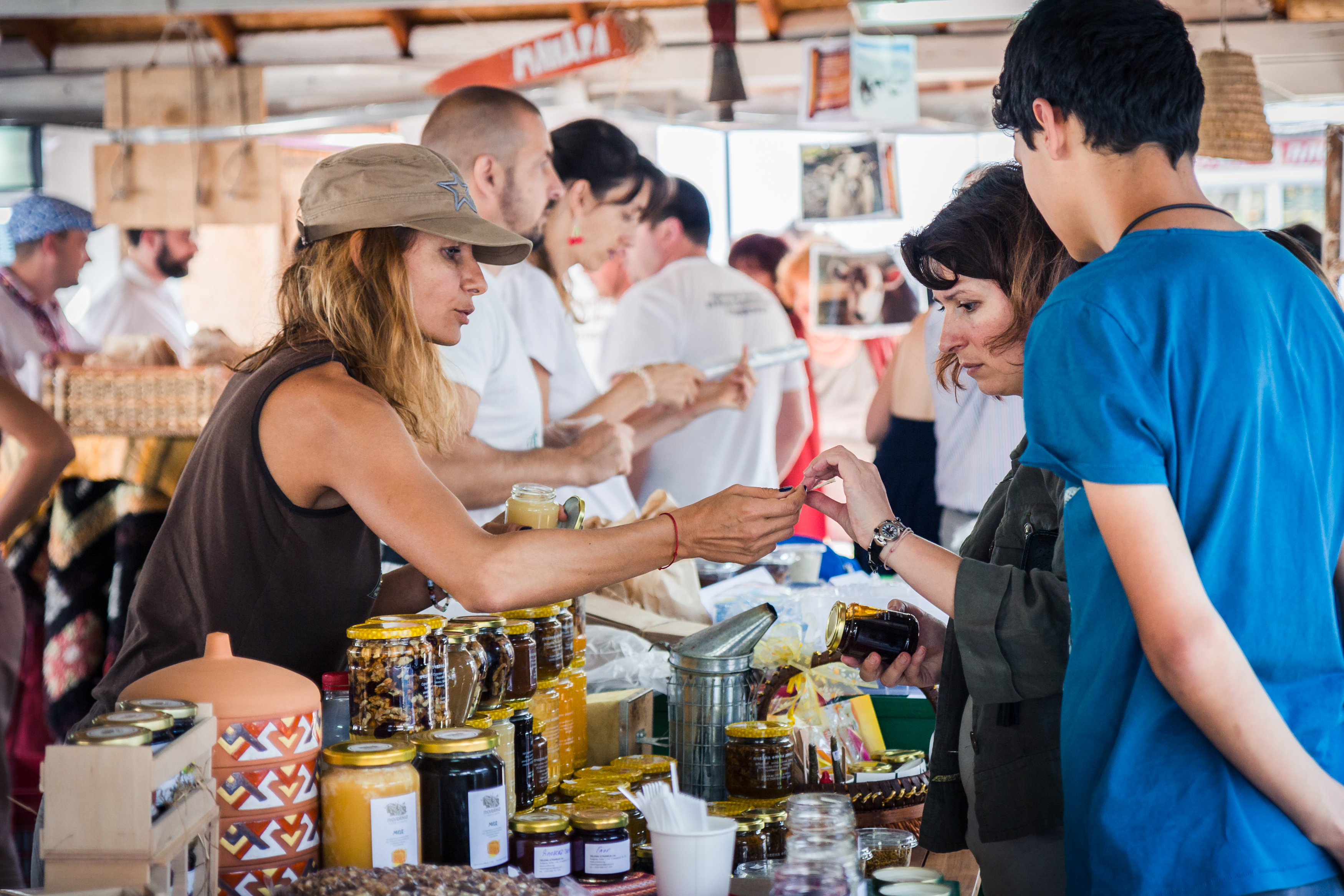
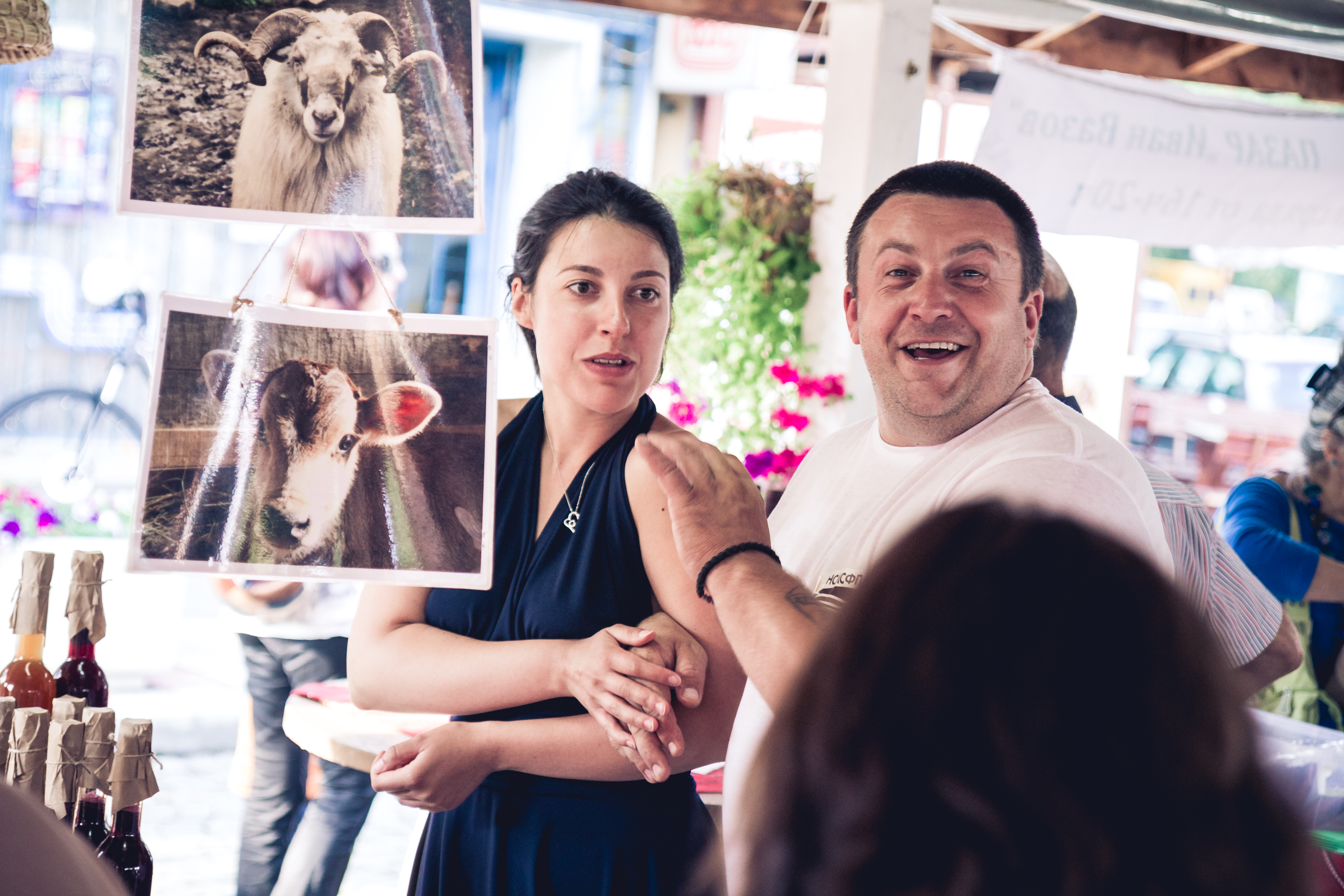
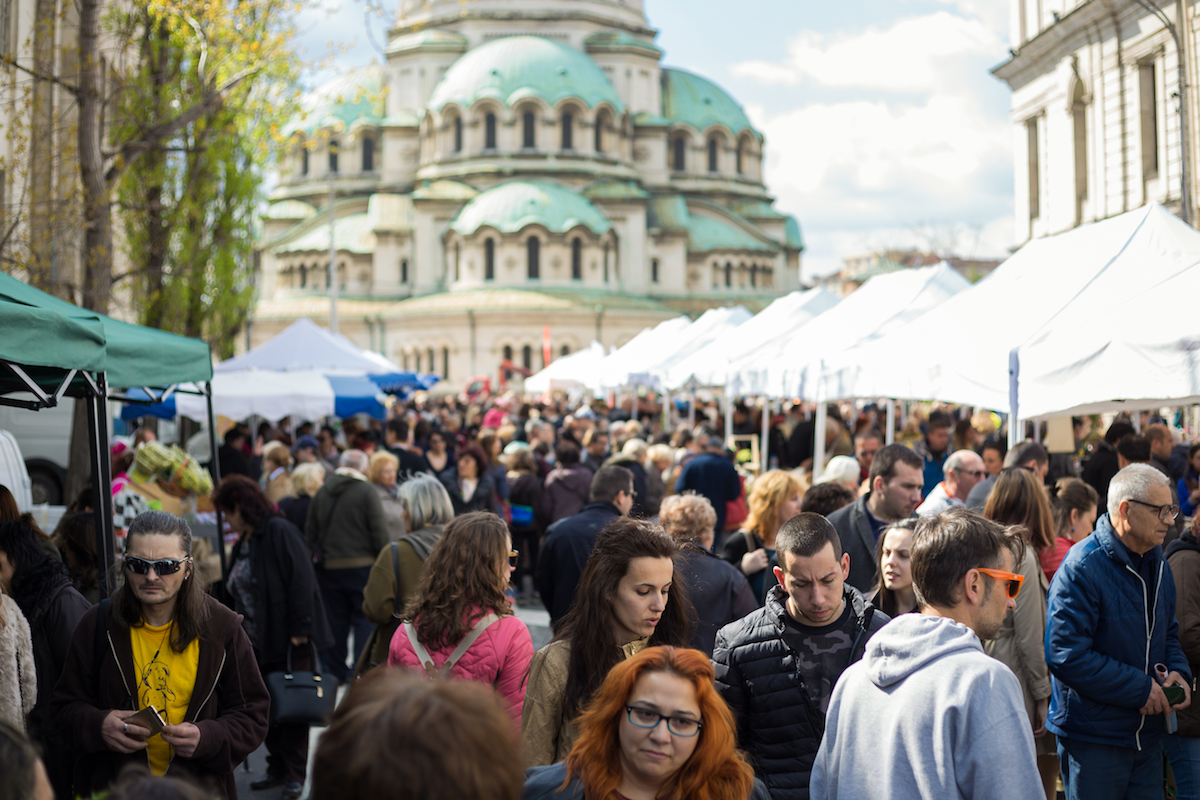
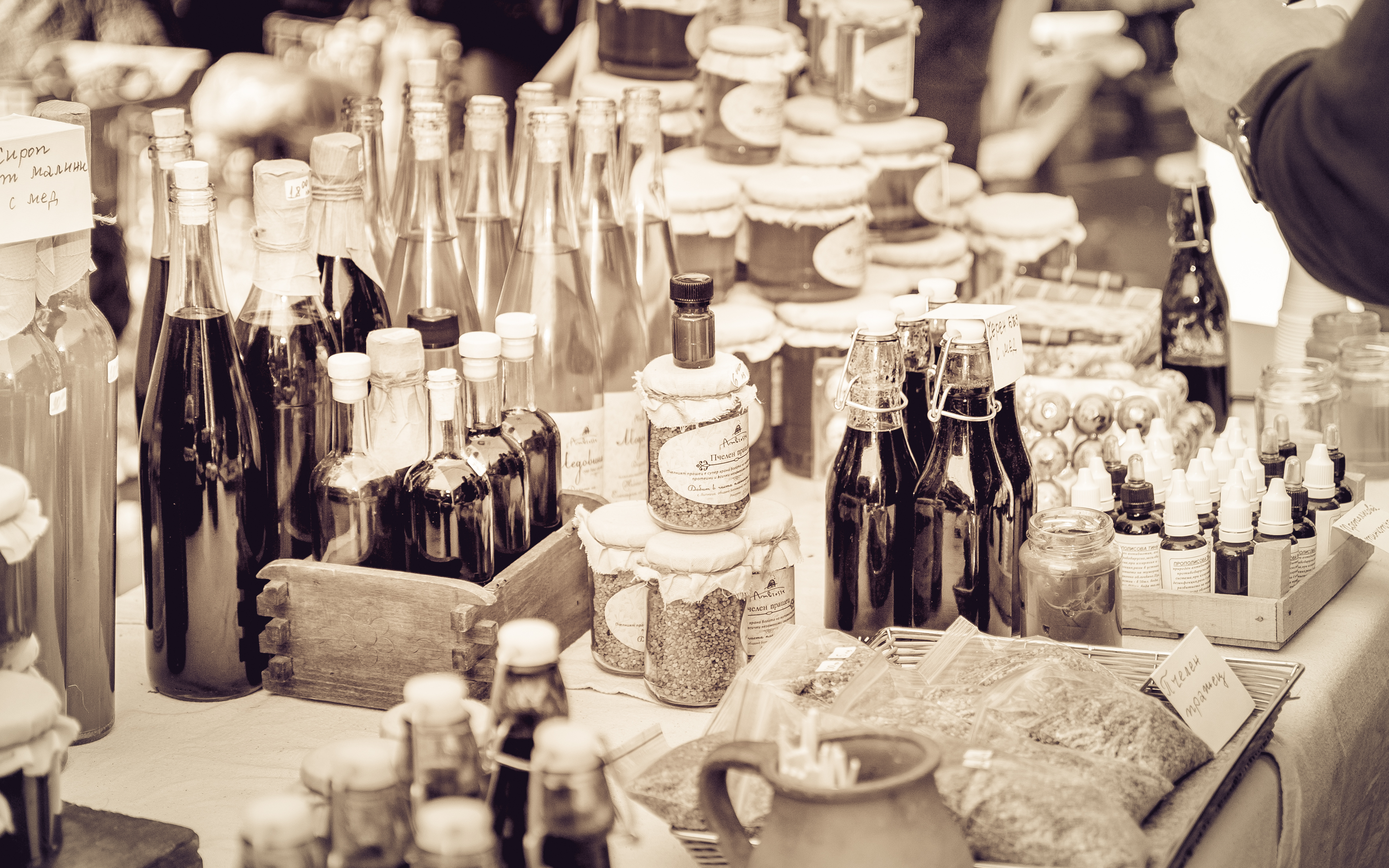
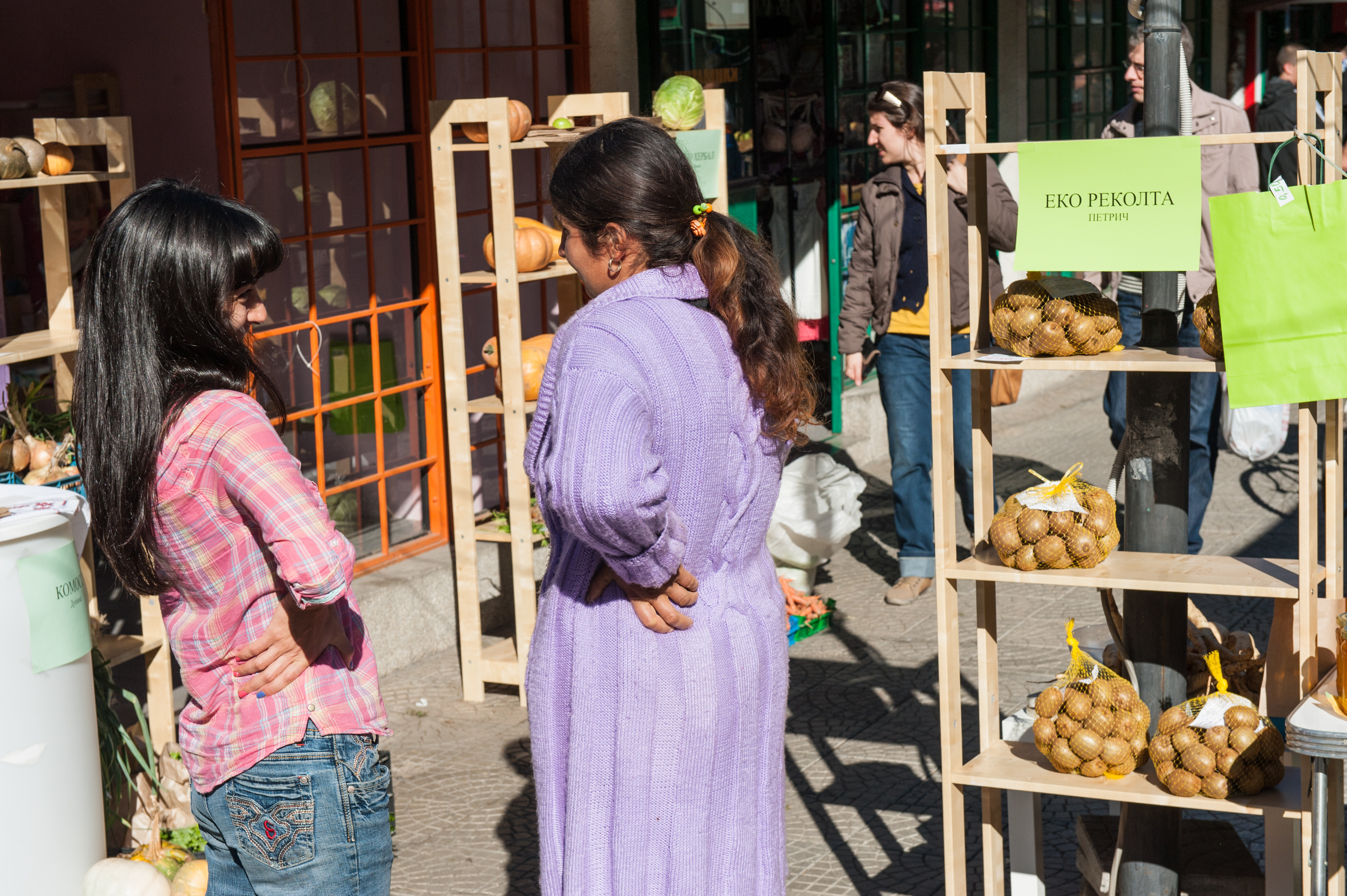
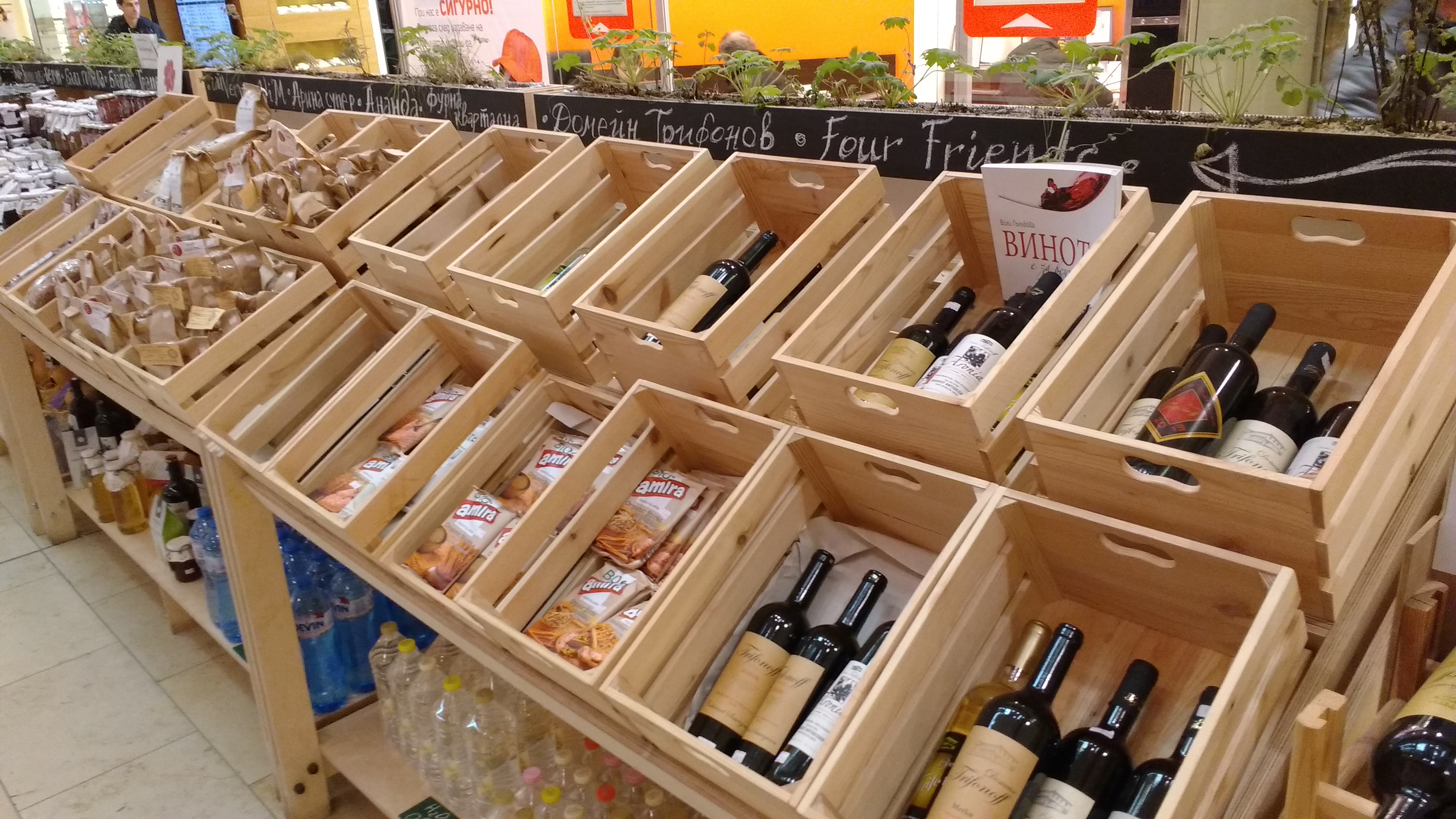
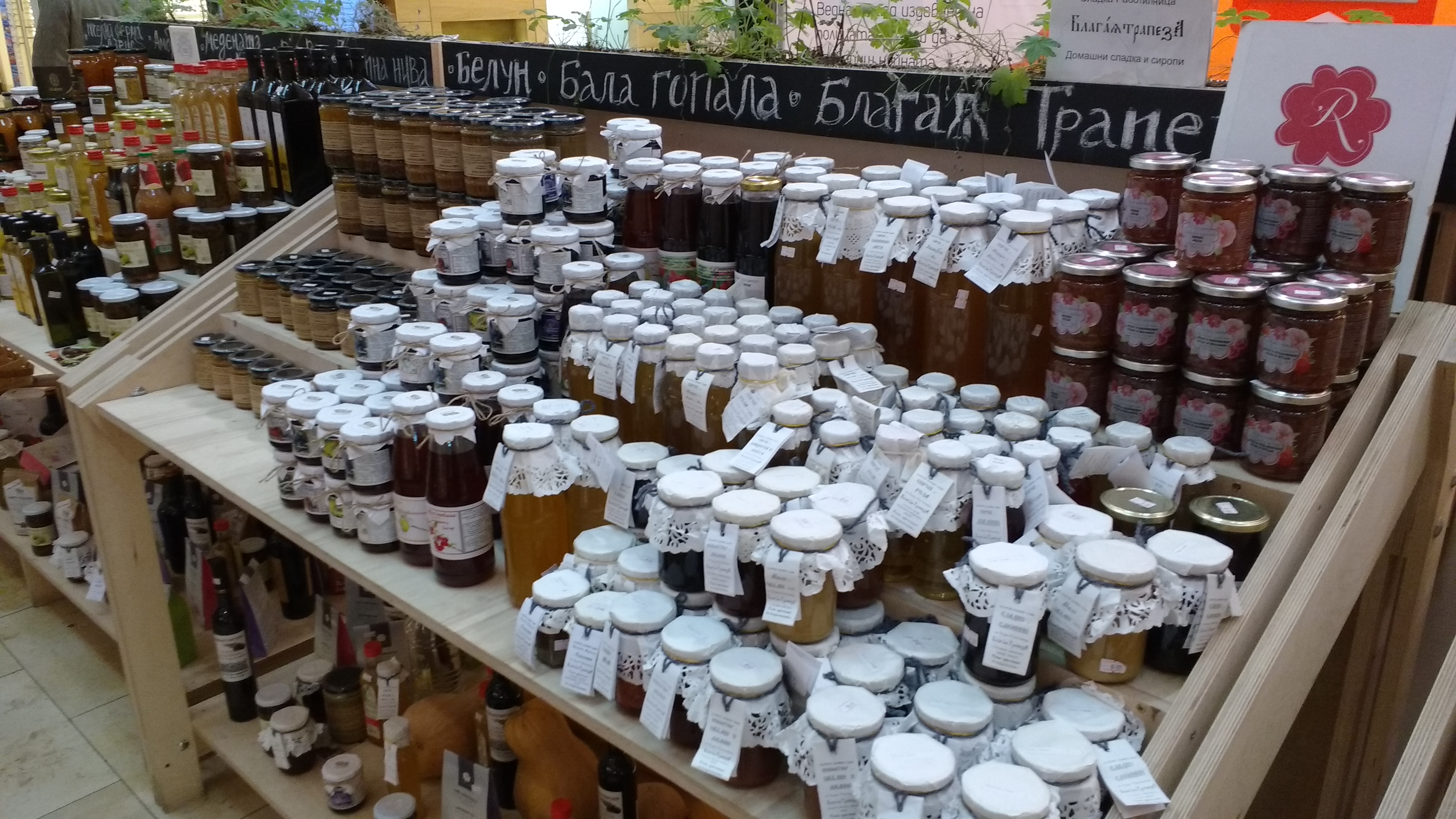
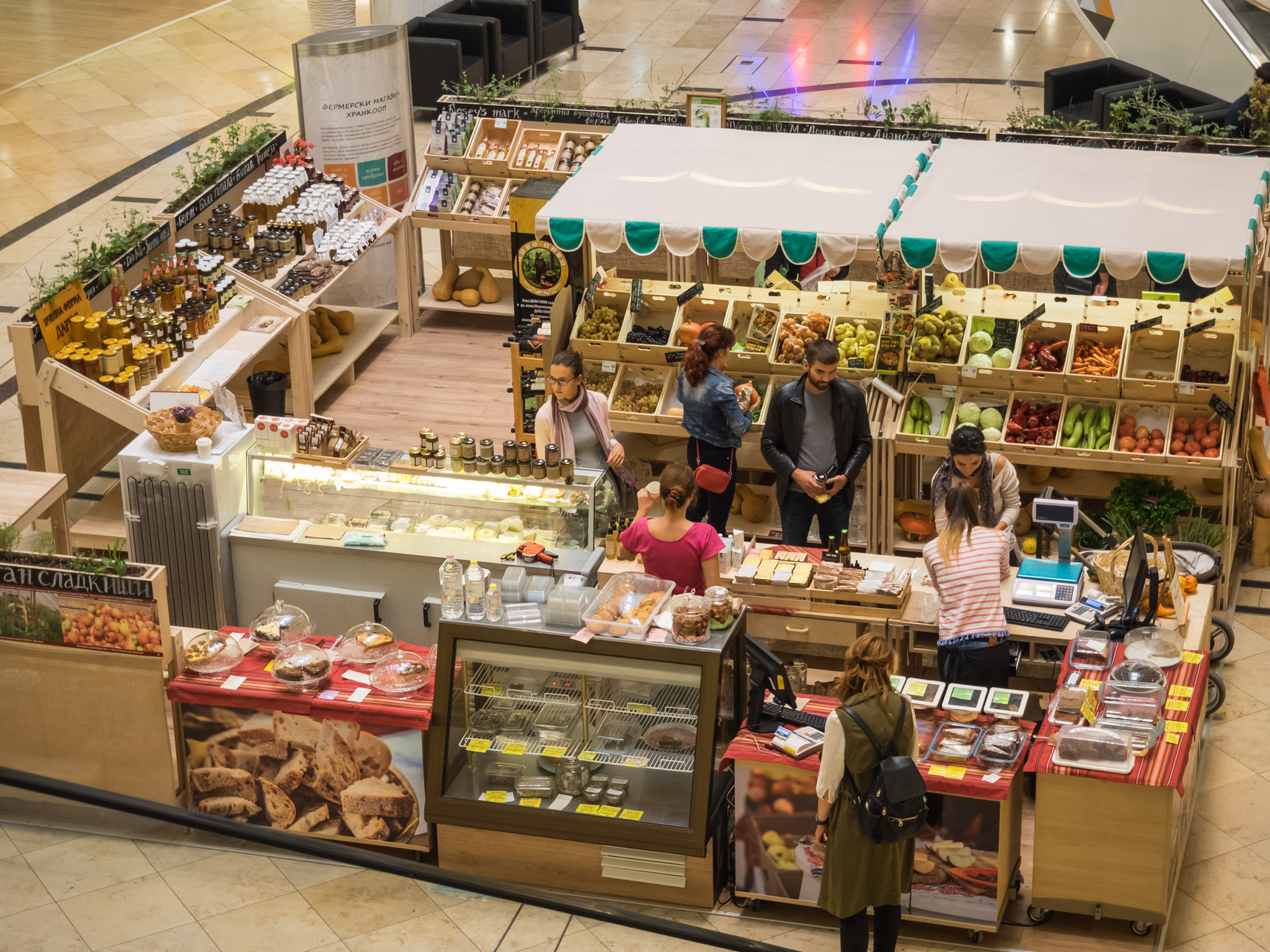
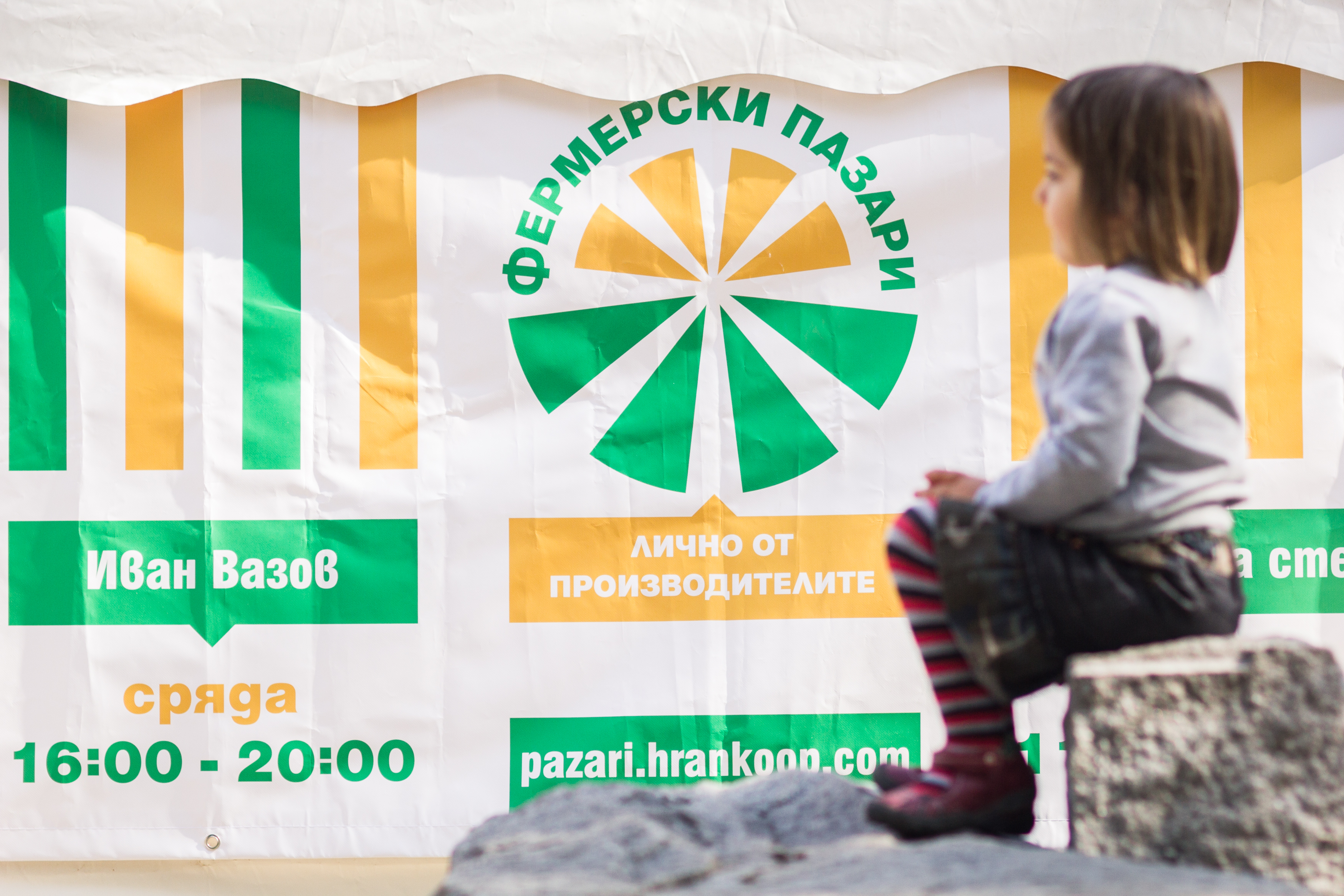
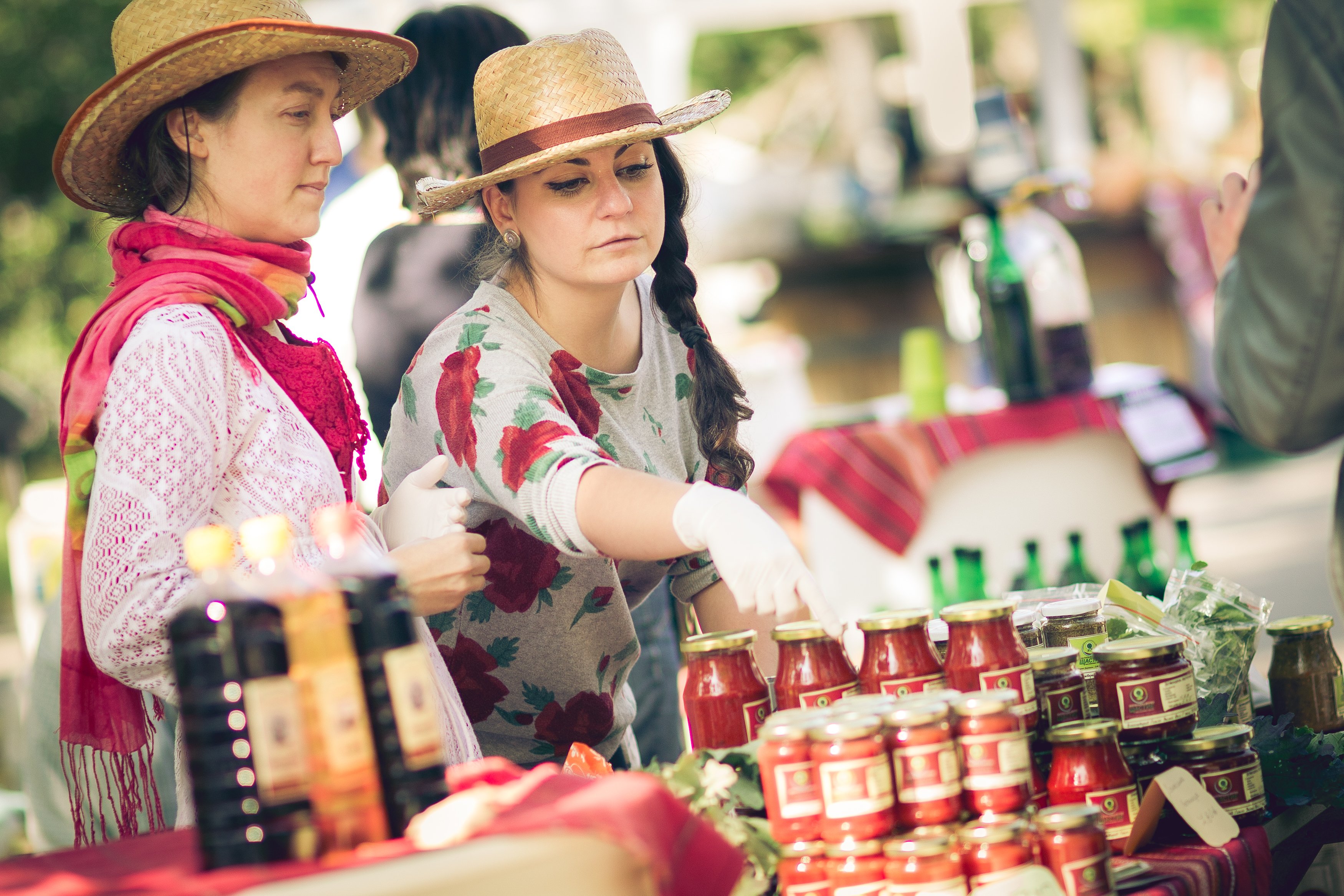
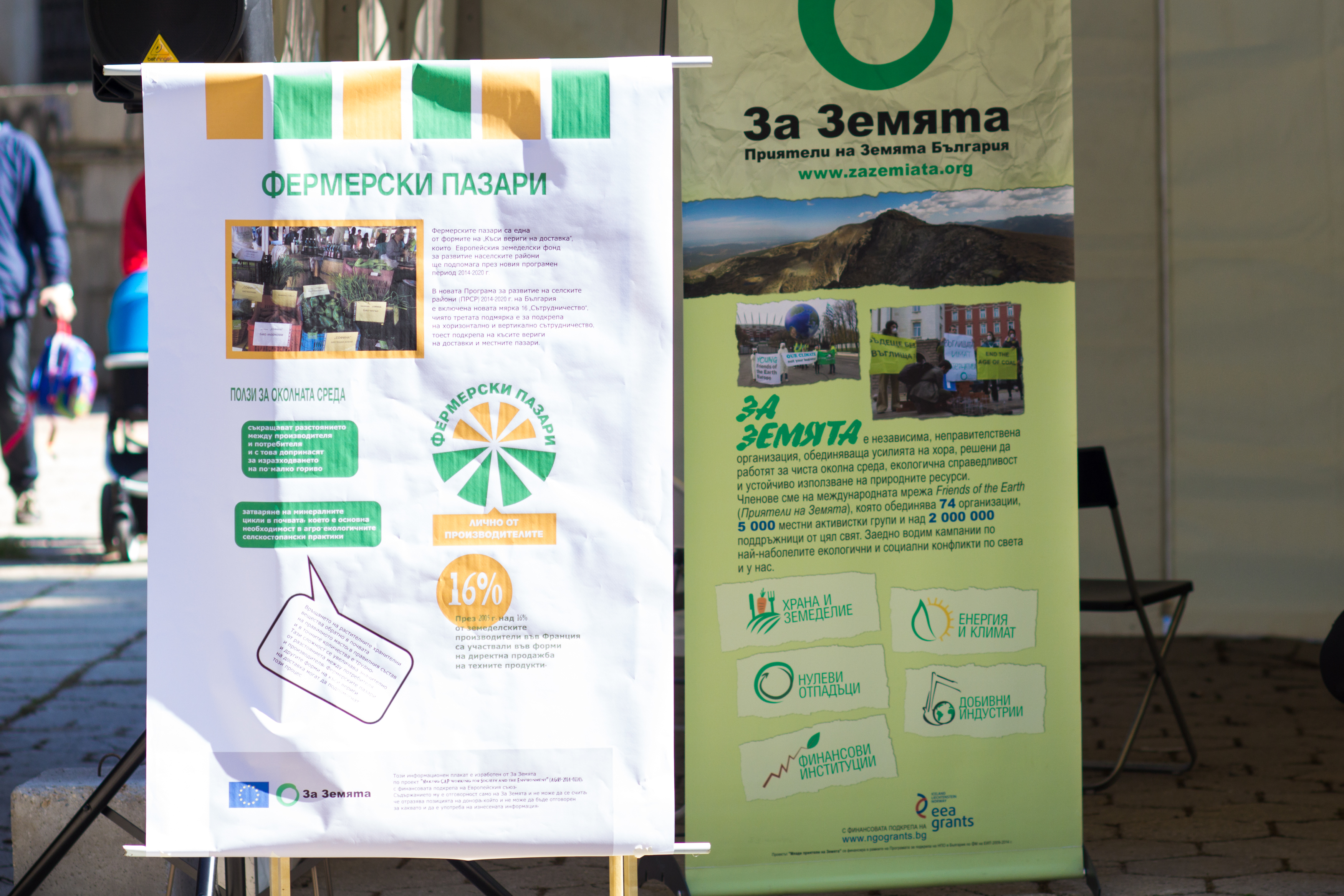
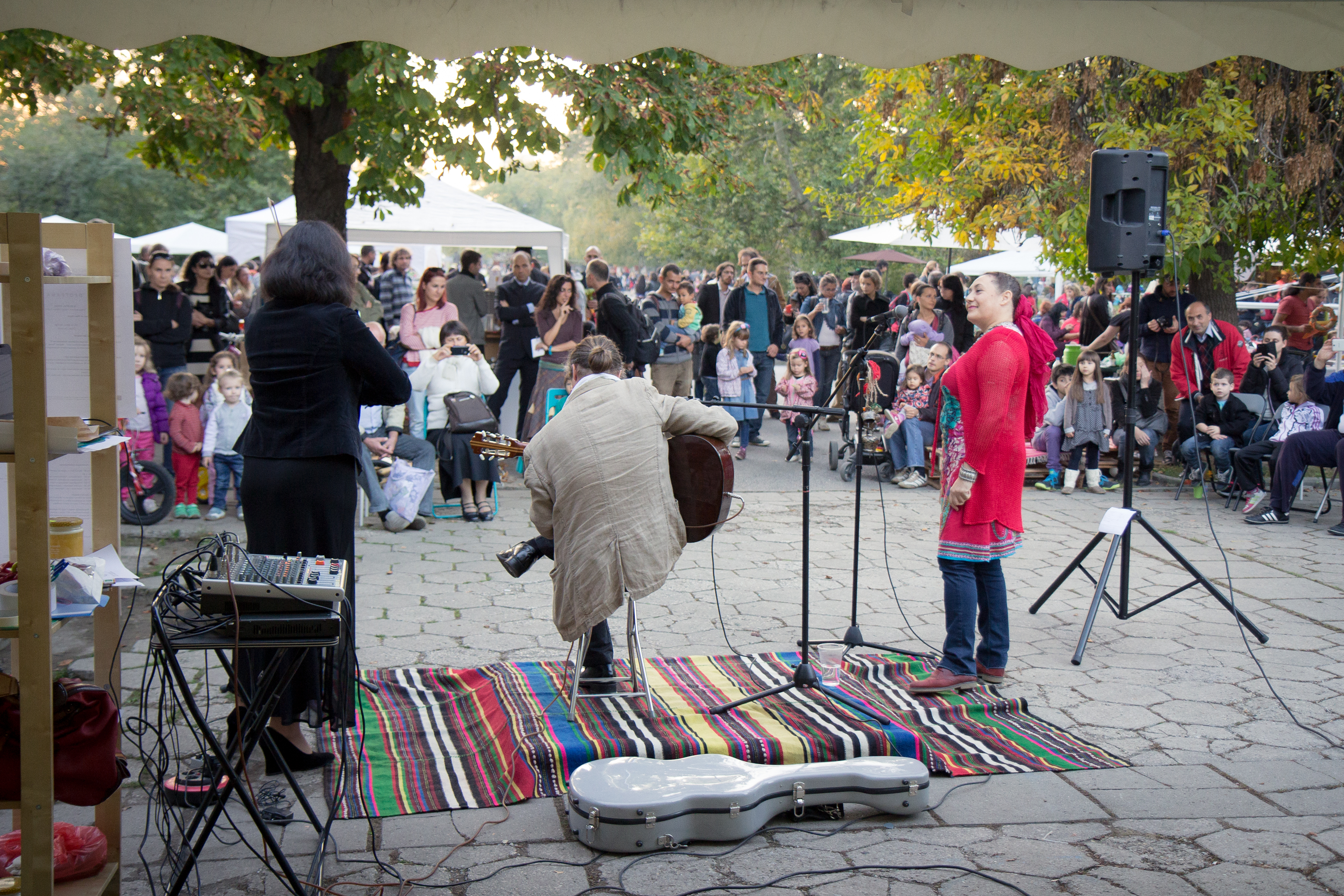
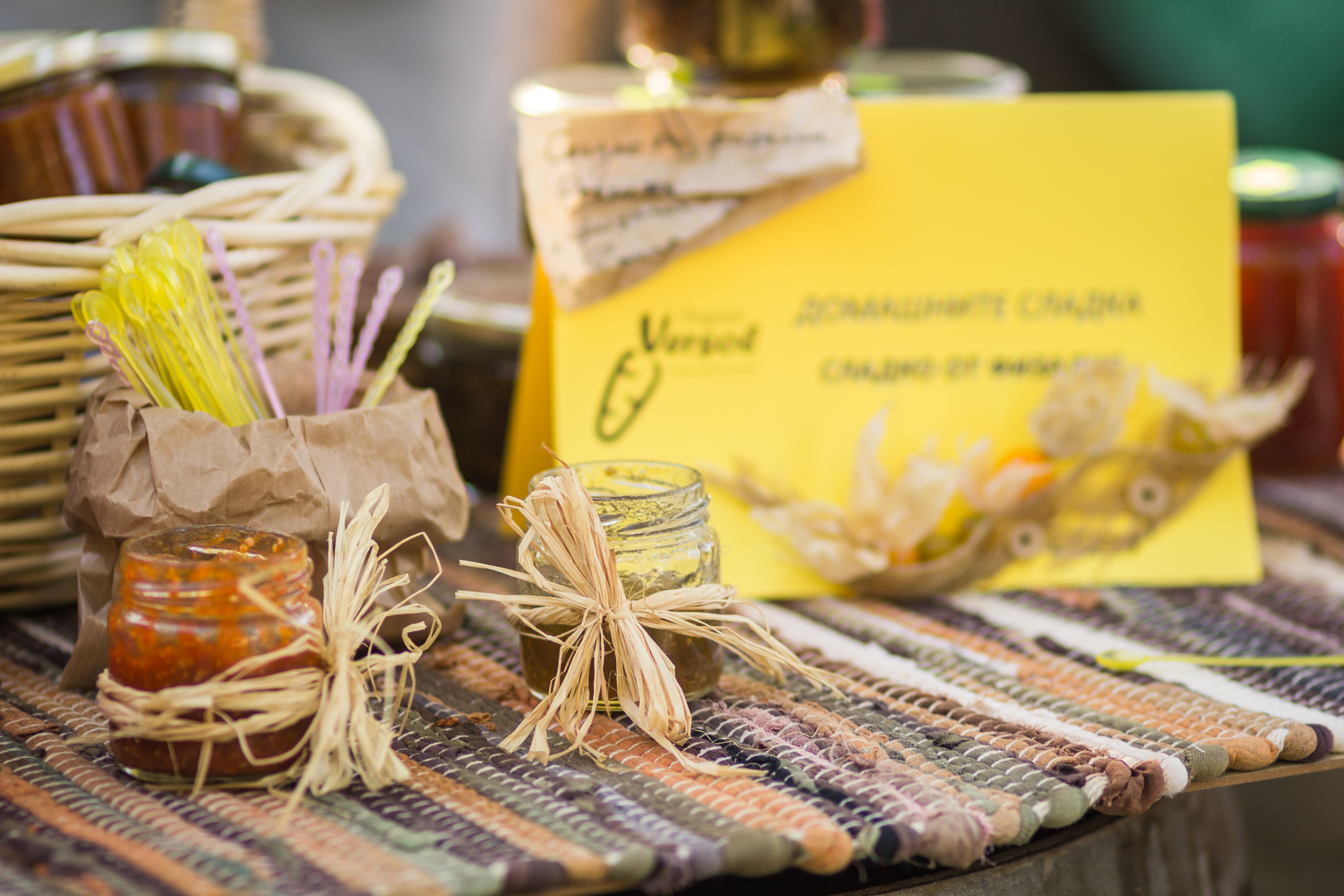
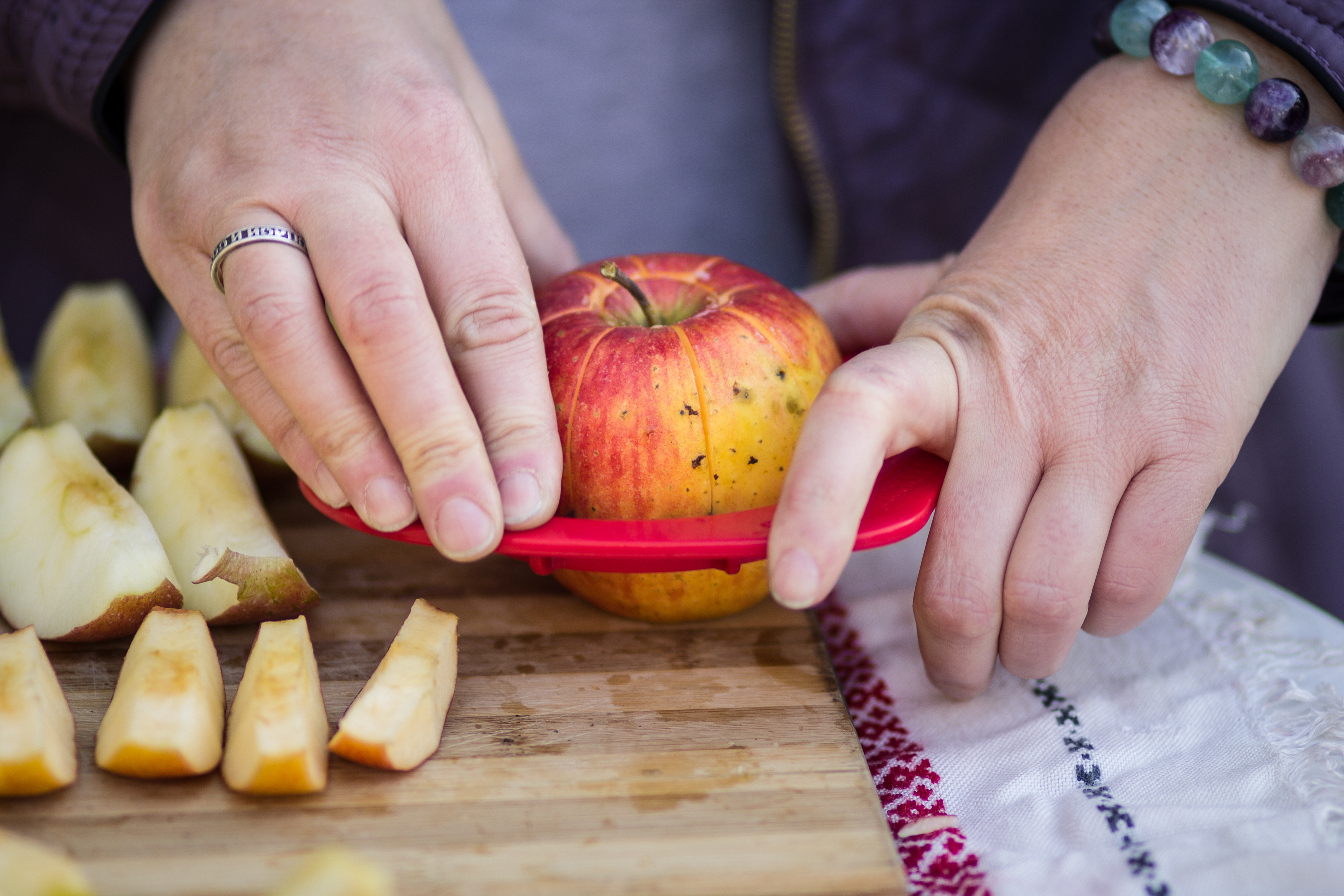
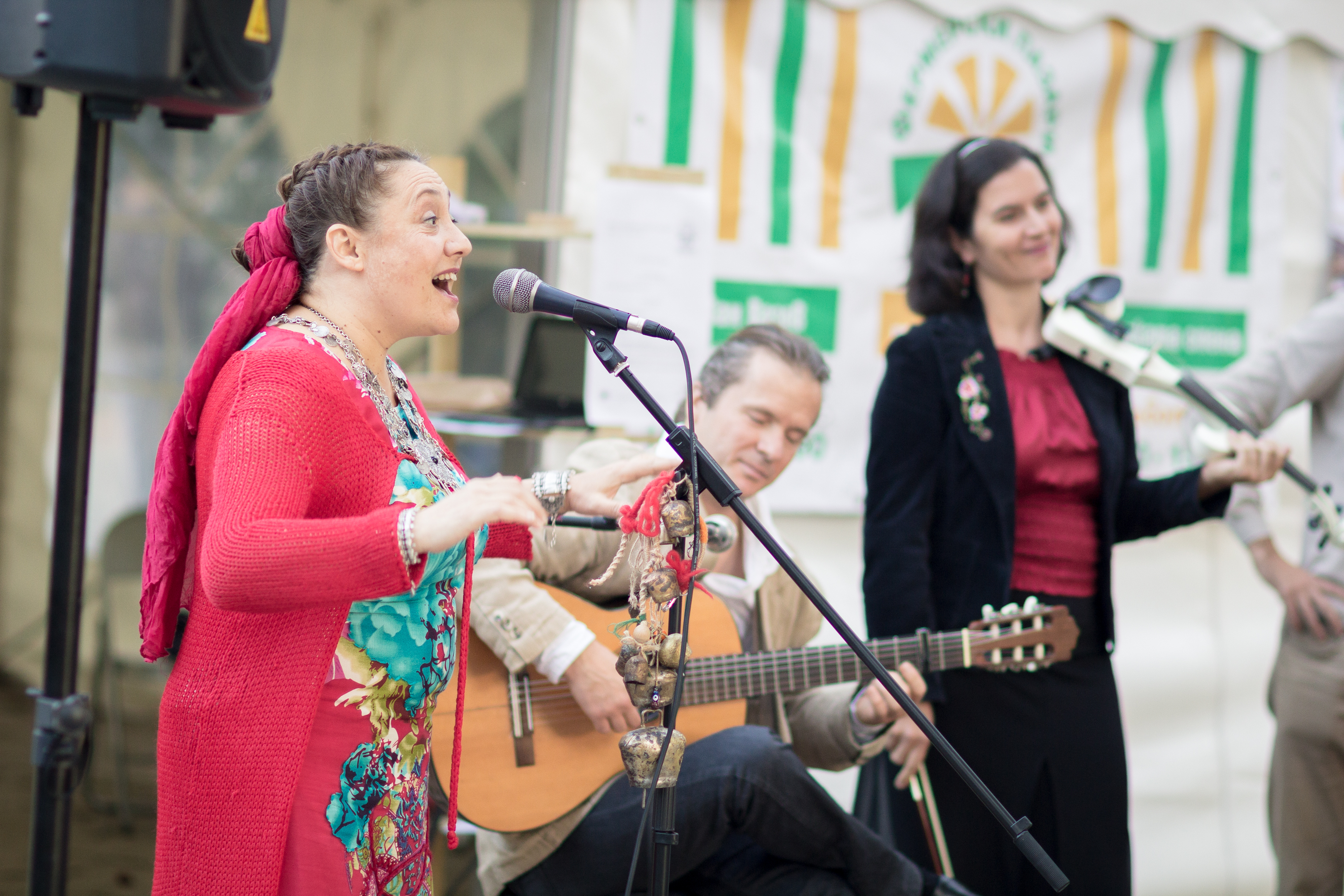

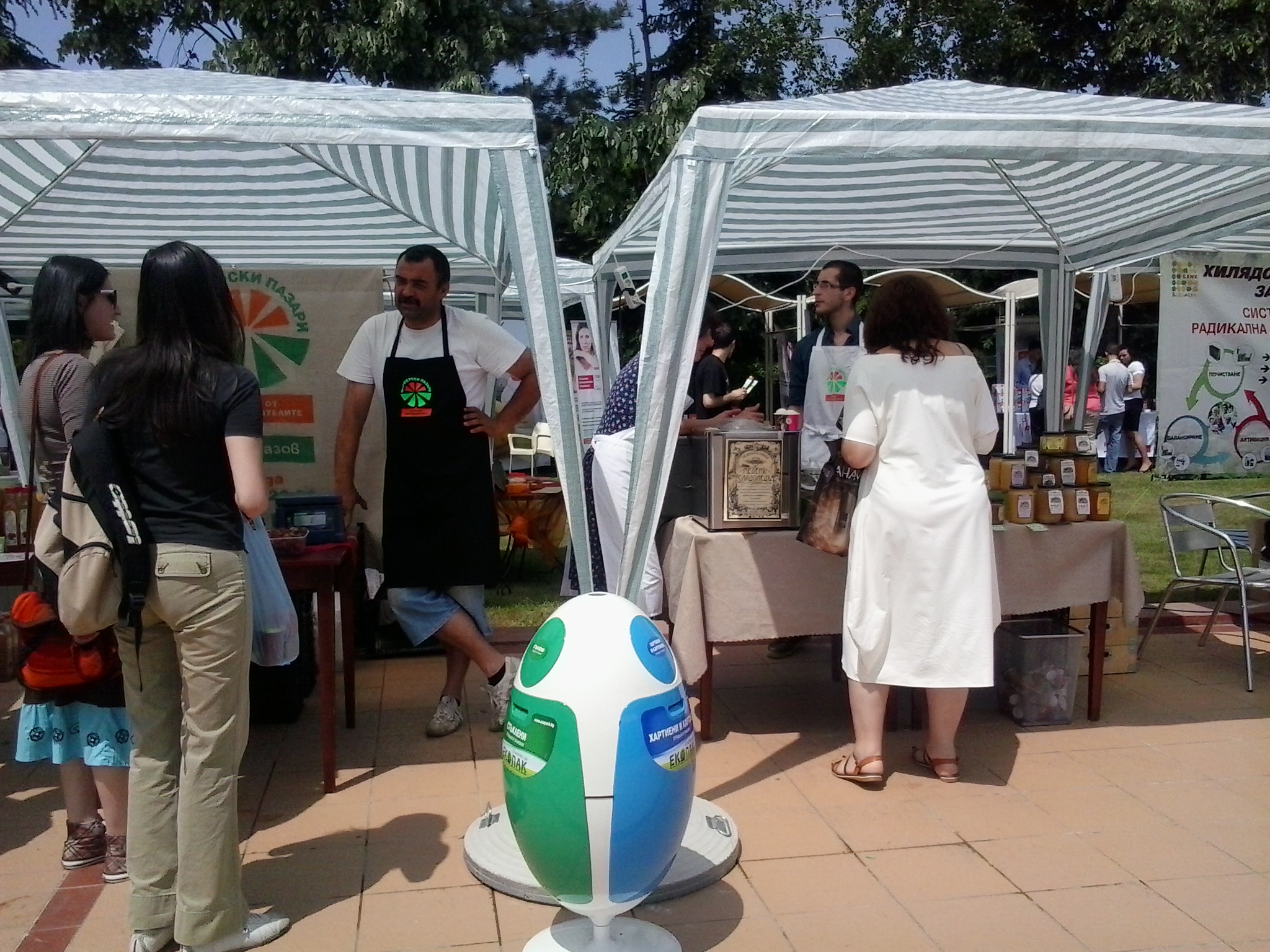
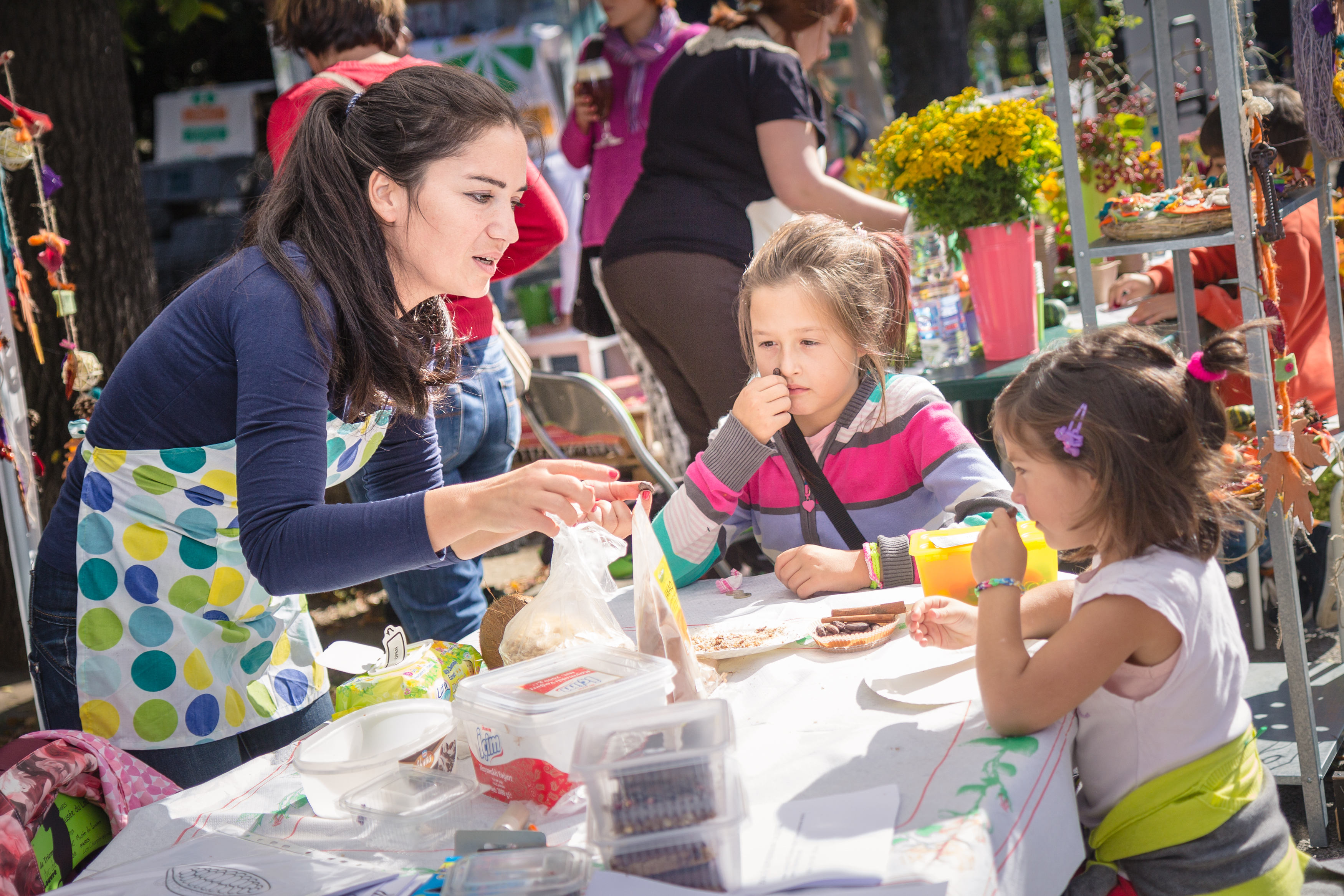
Pictures from Hrankoop's farmers's markets and co-operative store
MODERN CHALLENGES
When I was looking for the word bee in English (Not the insect, but the co-operative work people did together, often for each other in rural communities. Remember the scene in The Witness when the Amish gathered to build a barn together for a member of their community? That’s a bee.) I didn’t find it first. The Hungarian word is kaláka, and the only translation for it in the best online dictionary I use offered – was Bulgarian. тлака.
What Ralitsa described earlier as solidarity campaign, is тлака. Only in this case, there is a catch. The people gathered for work are not part of a local small community, but a post-modern one: a network. They don’t live in the same village, they don’t see each other every day. It’s a challenge to organize them. However developed our social networks are, however we have access to the Network of Networks in our pockets, we don’t meet every day on the fields, or in front of our village’s church. If we did, there would be no question, we will be there. Everyone will, the whole village, it’s self-evident. What is self-evident for us, is pushing a maybe or going button on a Facebook-event’s RSVP, meaning 10 to 50% that we will eventually show up. Ok, maybe that’s me, and your stats are better, but still…
“I try to remind producers that they can rely on such campaigns, and it’s their commitment to provide detailed information – what is there to be done, when does it have to be done – whether it is for a day, whether it is for a week or several weekends in a row, what can I provide – I can feed you, several people may sleep on the floor, there are beds, close by there is a guesthouse, hotels, I can pick you up from there or you have to get yourselves here… A solidarity campaign should be organized in a way that everybody is maximally relaxed. Not to say: “I have some work to be done” and people are wondering how to do it. “No, you have to provide them with information so they can help you”. We’ve had several such producers and it’s always very nice. Unfortunately, with all the tasks we have to fulfill in our daily lives, there is very little time and strength left to go to the farms. In 2015, my colleagues traveled around 20 of the farms we work with. They took pictures, videos, interviews, which was part of our marketing campaign with them. Half the cost of the photos and transport was covered by each of the farms, the other half was covered by us. This was also our way to stand in solidarity to them. We’d like to promote them, but that would be too expensive for them, so we decided to do it this way.“
Like a lot of protagonists of the stories in our Museum, Ralitsa and her colleagues, and the members of Hrankoop have to invent themselves on the go. They are pathfinders, most of them, and when their paths get steady, they will hopefully become roads. At least that’s how we like to think of it.
HAVING EACH OTHER’S BACK
Ralitsa told us several stories when they were gathering members, both producers and consumers to help a member of their community who was in trouble. Harvesting a man’s plums, while he was in bed with an injured spine, or finding, gathering and pastoring cows, because the electic fence burned down, and they were lost. And once they were at it, they also dug a well for the farm. She sure called that a day.
From finding a way out from the world of industrial food to establishing a community where people have each other’s back – is a long way already, and Hrankoop is quite a young initiative. There is a lot ahead of them.
 Drag any color from the left toolbar to an area or text in the page. A blue outline will indicate a droppable element.
Drag any color from the left toolbar to an area or text in the page. A blue outline will indicate a droppable element. On mobile, wait a tiny bit until you drag the color drop.
On mobile, wait a tiny bit until you drag the color drop.
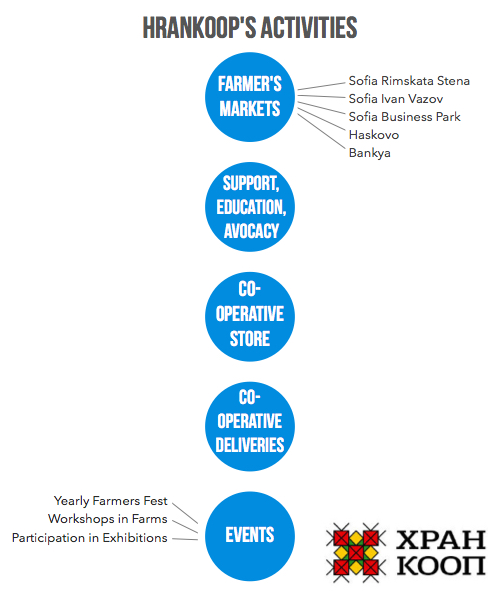

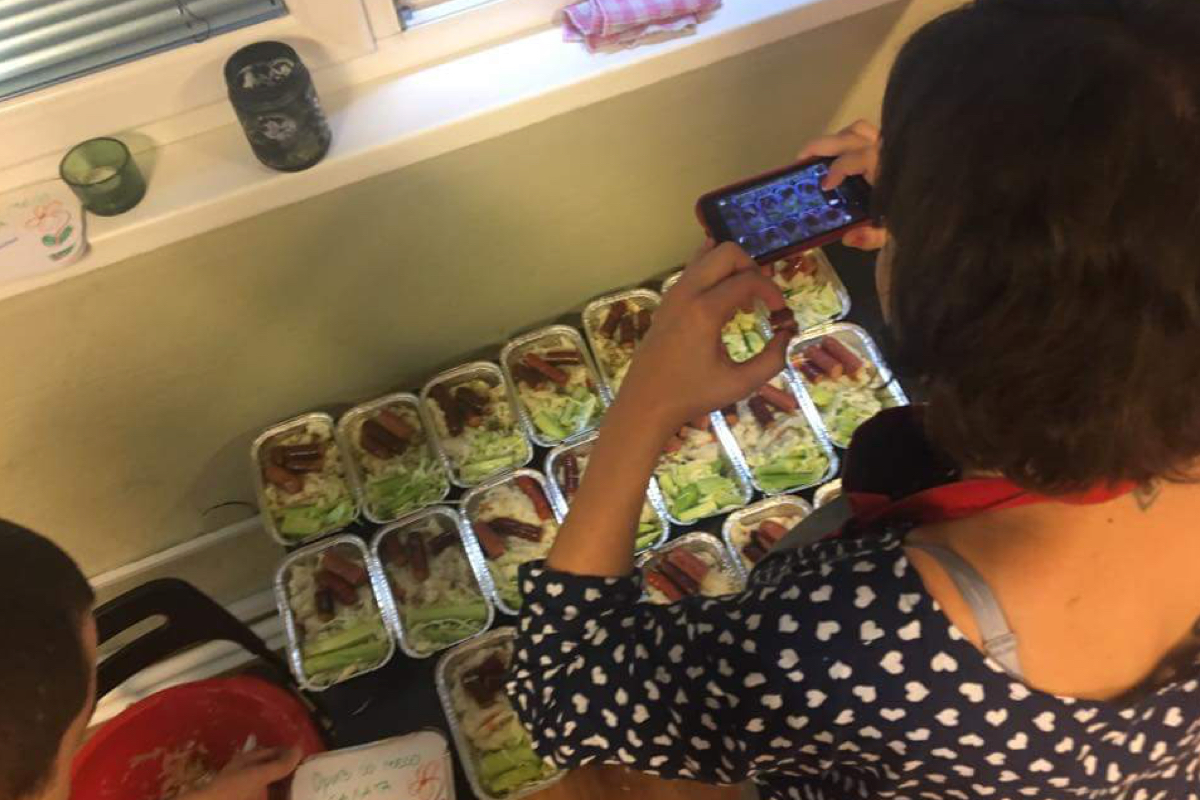

 English
English Albanian
Albanian Български
Български Magyar
Magyar македонски
македонски polski
polski српски
српски